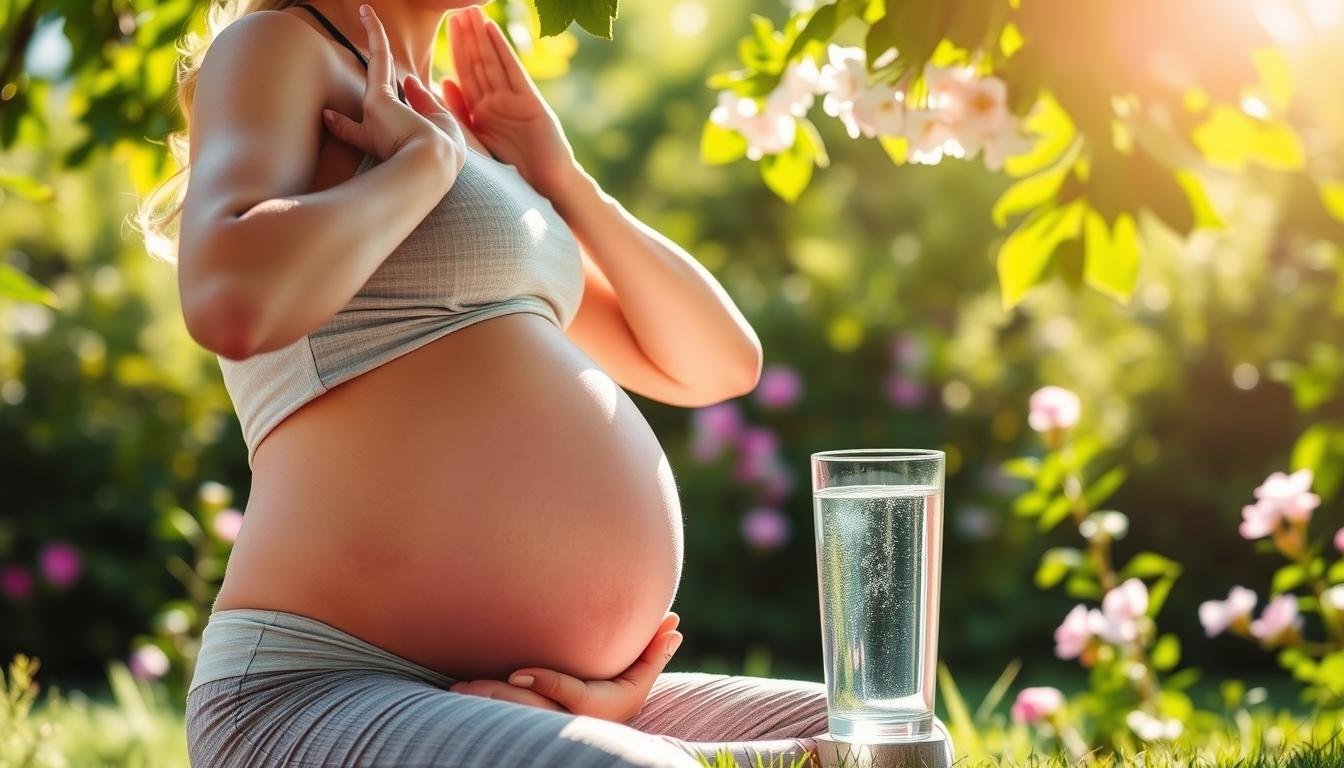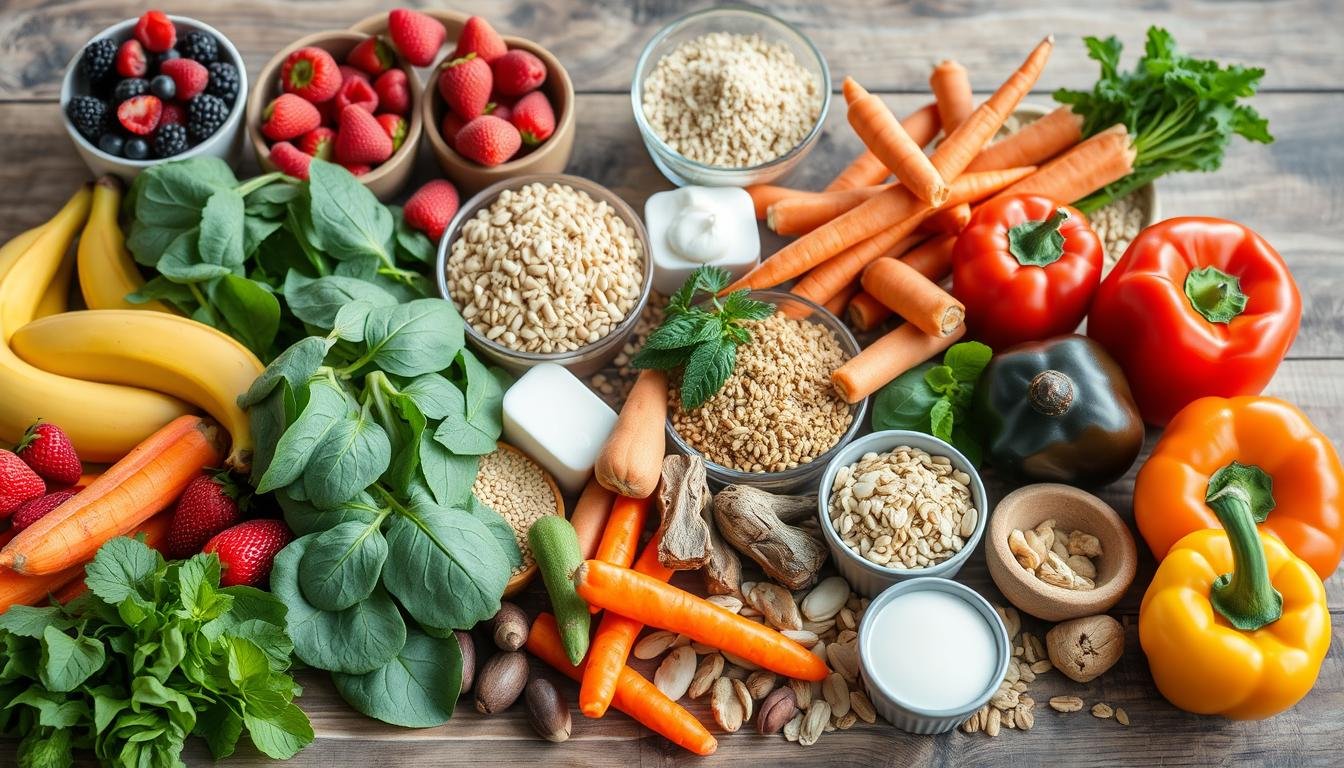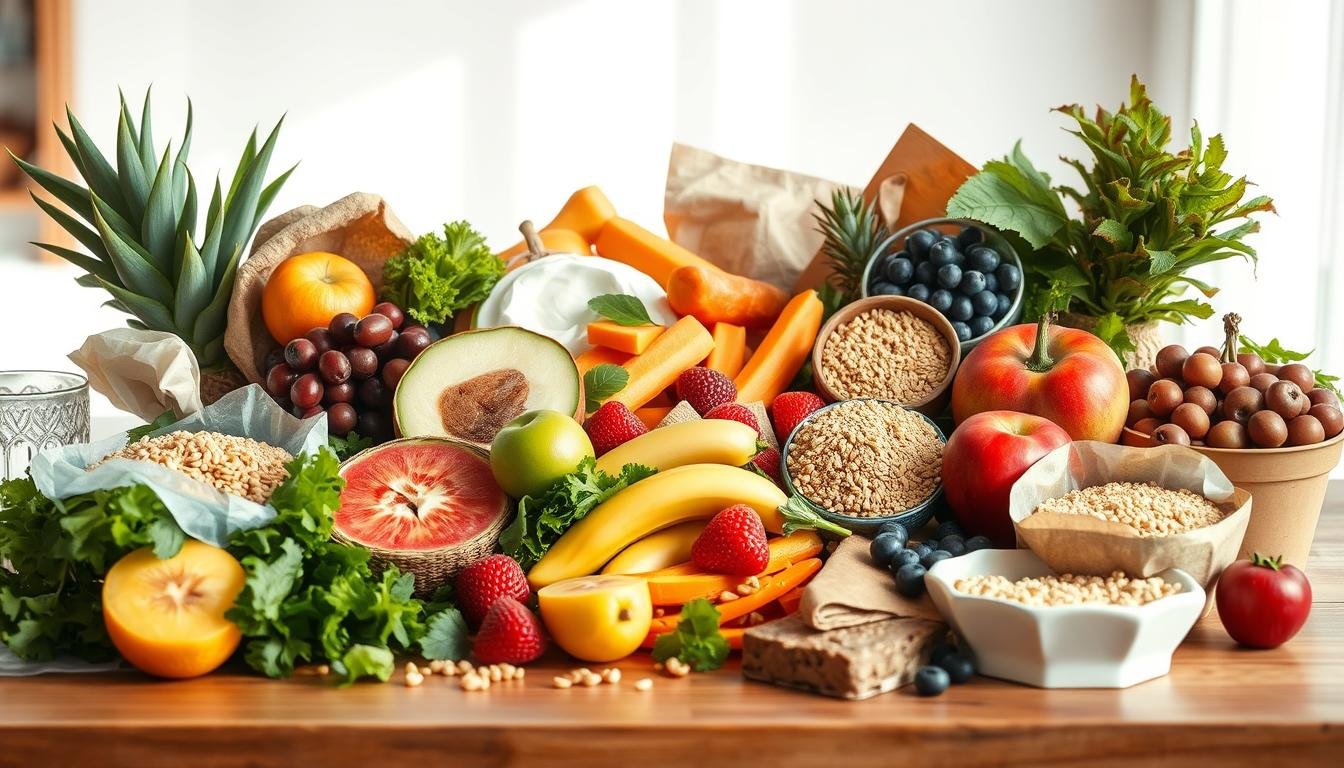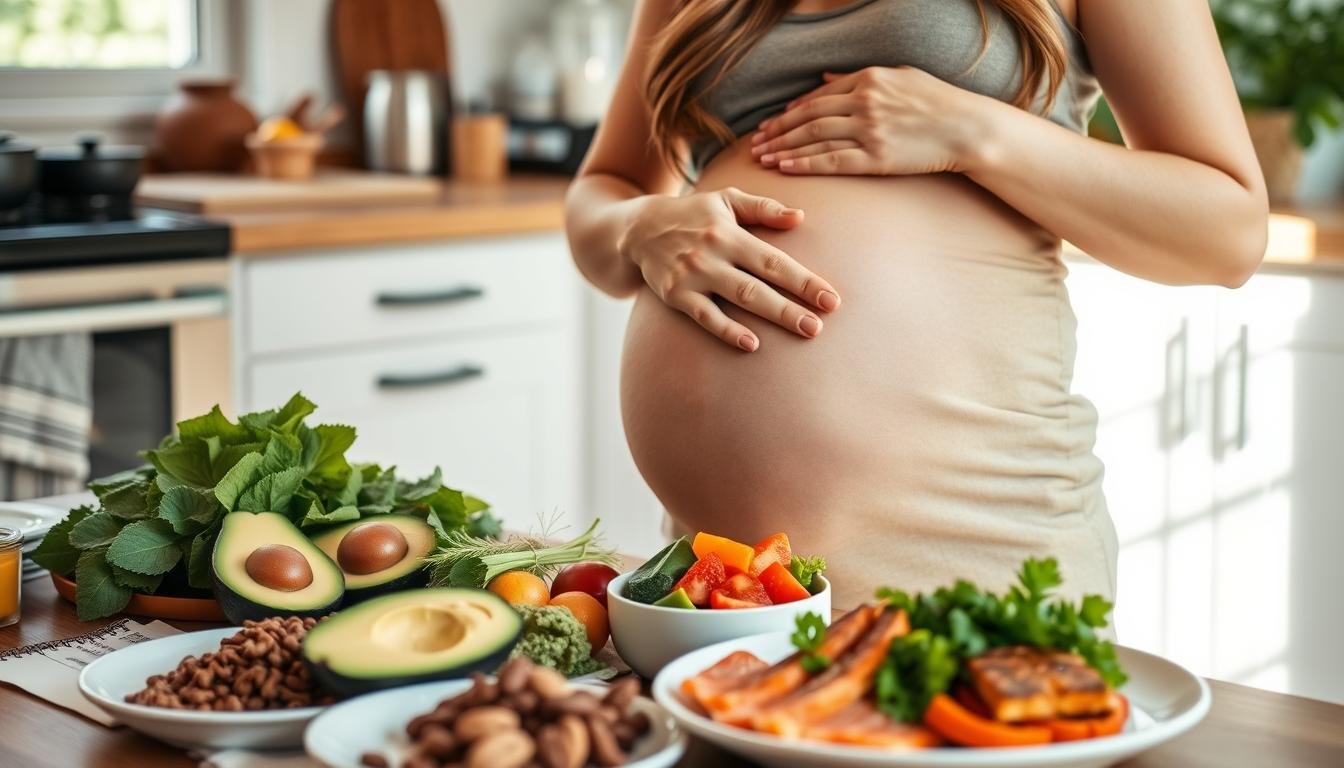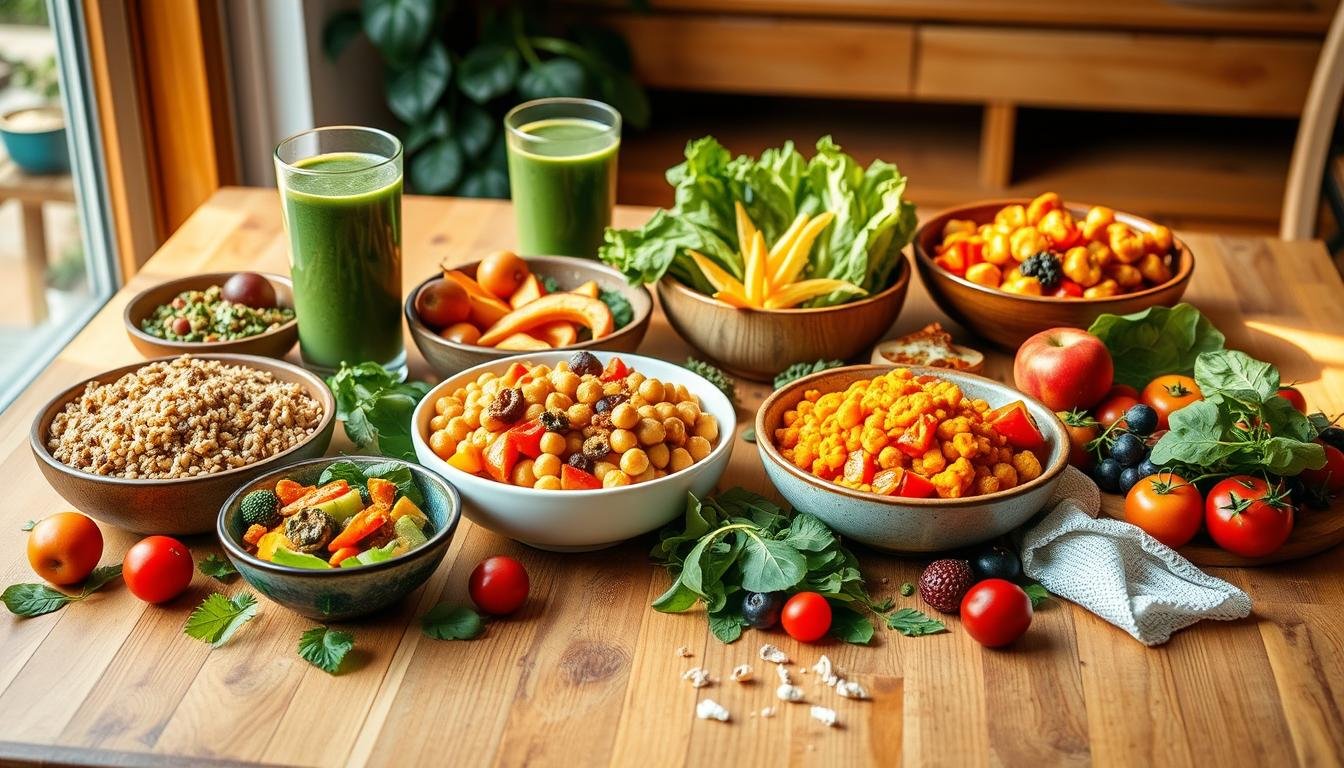Pregnancy brings many changes, and staying hydrated is key for both mom and baby. Expectant mothers often ask about their water intake and how to meet their hydration needs. Let’s look into why drinking enough water is vital for a healthy pregnancy.
Your body needs more fluids during pregnancy to support your baby’s growth and your health. Drinking enough water helps avoid complications and meets the body’s increased demands. But how much water is really needed?
The American College of Obstetricians and Gynecologists recommends 8 to 12 cups (64 to 96 ounces) of water daily for pregnant women. This might seem like a lot, but we’ll share simple tips to help you stay hydrated during your pregnancy.
We’ll discuss the benefits of hydration, factors that influence your water needs, and practical ways to drink enough fluids. Let’s start your journey to optimal hydration during pregnancy!
The Importance of Hydration During Pregnancy
Drinking enough water is key for both mom and baby during pregnancy. Your body changes a lot, and you need more water. Let’s look at why drinking water is important and how it helps your pregnancy.
Benefits of Proper Hydration for Expectant Mothers
Drinking enough water during pregnancy has many benefits:
- Maintains amniotic fluid levels
- Supports fetal circulation
- Aids in nutrient delivery
- Regulates body temperature
- Reduces swelling
Risks of Dehydration in Pregnancy
Dehydration can cause serious problems. Pregnant women should know these risks:
- Preterm labor
- Urinary tract infections
- Constipation
- Increased risk of heat exhaustion
How Hydration Supports Fetal Development
Drinking enough water is crucial for your baby’s growth. It helps in:
- Forming the placenta
- Developing amniotic fluid
- Supporting blood volume expansion
After giving birth, your body still needs care. Running after having a baby needs careful thought about your body’s healing.
| Trimester | Daily Water Intake (cups) | Key Hydration Needs |
|---|---|---|
| First | 8-10 | Morning sickness relief |
| Second | 10-12 | Amniotic fluid production |
| Third | 12-13 | Swelling reduction |
Meeting your water needs during pregnancy is vital for a healthy pregnancy. By staying hydrated, you support your body and your baby’s growth.
Recommended Daily Water Intake for Pregnant Women
Pregnant women need more fluids to support their changing bodies and growing babies. The question “How much water do pregnant women need?” is crucial for expectant mothers. Generally, the recommended daily intake ranges from 8 to 10 cups (64-80 ounces) of water.
This recommendation may increase in later trimesters or during hot weather. Individual needs vary based on factors like body weight, activity level, and climate. It’s essential for pregnant women to listen to their bodies and drink when thirsty.
Fluids for expectant mothers aren’t limited to plain water. Nutrient-rich foods like salmon can contribute to hydration while providing essential omega-3 fatty acids. Other hydrating options include:
- Herbal teas (caffeine-free)
- Fresh fruit juices
- Milk
- Soups and broths
Here’s a breakdown of daily fluid intake recommendations by trimester:
| Trimester | Recommended Fluid Intake | Additional Notes |
|---|---|---|
| First | 8-10 cups | Helps with nausea and constipation |
| Second | 8-10 cups | Supports increased blood volume |
| Third | 10-12 cups | Aids in amniotic fluid production |
Remember, these are guidelines. Pregnant women should consult their healthcare providers for personalized advice on fluid intake, considering their unique health needs and circumstances.
Factors Affecting Hydration Needs in Pregnancy
Pregnancy hydration needs change for many reasons. Knowing these can help moms-to-be stay hydrated for their health and their baby’s growth.
Climate and Temperature Considerations
Hot weather means you need to drink more water when you’re pregnant. If you live in a warm place or it’s summer, drink more to avoid overheating.
Physical Activity Levels
Active moms-to-be need more water. Exercise is good, but you lose water through sweat. Drinking water helps prevent fatigue and overheating.
Trimester-Specific Hydration Requirements
Each pregnancy stage has different hydration needs. The third trimester needs more water because of blood and amniotic fluid increase. Drinking enough water supports your baby and helps with pregnancy discomforts.
| Trimester | Daily Water Intake | Key Hydration Focus |
|---|---|---|
| First | 8-10 cups | Nausea management |
| Second | 10-12 cups | Blood volume increase |
| Third | 12-13 cups | Amniotic fluid support |
These are general guidelines. Your doctor can give you advice on drinking water in pregnancy based on your needs and health.
Signs of Dehydration in Pregnant Women
It’s important to know the signs of dehydration when you’re pregnant. This helps keep you and your baby healthy. Pay attention to how your body feels to stay hydrated.
Urine color is a simple way to check if you’re drinking enough water. If your urine is dark yellow or amber, you might not be drinking enough. Try to keep your urine pale yellow to stay hydrated during pregnancy.
Here are some common signs of dehydration:
- Dry mouth and lips
- Fatigue or sluggishness
- Headaches
- Dizziness or lightheadedness
- Decreased urine output
If you notice these signs, drink more water right away. Keeping yourself hydrated is key for your health and your baby’s. Remember, you might not always feel thirsty when you need to drink more, so it’s good to drink water regularly.
Listen to your body and drink water all day. This helps you meet your pregnancy water needs. If you keep feeling dehydrated, talk to your doctor. They can help you figure out what to do next.
Hydration Tips: How Much Water Do Pregnant Women Need?
Drinking enough water is key for pregnant women and their babies. It helps the baby grow and keeps the mom healthy. Here are some easy ways to drink more water.
Practical Strategies for Staying Hydrated
Always carry a water bottle with you. Use your phone to remind you to drink water. Add slices of fresh fruit to your water for a tasty drink. These steps can really help you drink more water while you’re pregnant.
Creative Ways to Increase Water Intake
Make drinking water fun by drinking a glass before meals. Use a straw to make drinking water easier. Get a smart water bottle to track how much you drink. These ideas make drinking water a breeze.
Hydration-Friendly Foods for Expectant Mothers
Eat foods that help you stay hydrated. Here are some water-rich foods to add to your diet:
| Food | Water Content | Benefits |
|---|---|---|
| Watermelon | 92% | Rich in vitamins A and C |
| Cucumbers | 96% | Low in calories, high in fiber |
| Strawberries | 91% | Packed with antioxidants |
| Zucchini | 95% | Good source of potassium |
Using these tips, you can stay hydrated during your pregnancy. Remember, everyone’s needs are different. Always talk to your doctor for advice that’s right for you.
Alternative Hydration Sources Beyond Plain Water
Pregnant women need to stay hydrated, but plain water isn’t the only option. Fluids for expectant mothers come in various forms, addressing prenatal hydration needs creatively. Let’s explore some alternatives that can keep you refreshed and nourished during pregnancy.
Herbal teas offer a flavorful way to boost your fluid intake. Opt for caffeine-free varieties like peppermint or ginger tea. These can soothe pregnancy discomforts while contributing to your daily hydration goals.
Coconut water is packed with electrolytes and natural sugars. It’s a great choice for replenishing fluids, specially after light exercise. Low-fat milk provides hydration along with calcium and protein, supporting both you and your baby’s needs.
Don’t forget about water-rich fruits and vegetables. They can significantly contribute to your fluid intake while providing essential vitamins and minerals. Consider adding these hydrating foods to your diet:
- Watermelon
- Cucumber
- Strawberries
- Celery
- Oranges
| Hydration Source | Benefits | Considerations |
|---|---|---|
| Herbal Tea | Caffeine-free, soothing | Choose pregnancy-safe varieties |
| Coconut Water | Rich in electrolytes | Natural sugar content |
| Low-fat Milk | Calcium and protein | Lactose intolerance |
| Fruits and Vegetables | Vitamins and fiber | Wash thoroughly before consuming |
Remember, while these alternatives can supplement your fluid intake, they shouldn’t completely replace water. Aim for a balanced approach to meet your prenatal hydration needs. Always consult your healthcare provider about the best hydration strategies for your specific pregnancy journey.
Myths and Misconceptions About Pregnancy Hydration
Pregnancy hydration is key, but many myths exist. Let’s debunk common misunderstandings about water intake for pregnant women. We’ll look into the facts of hydration during pregnancy.
Debunking Common Hydration Myths
One myth is the “drink for two” idea. While more water is needed, you don’t have to double your intake. Aim for 8-10 cups of water a day, adjusting for your activity level and climate.
Another myth is that all caffeine must be avoided. Actually, up to 200mg of caffeine daily is safe for pregnant women.
The Truth About Caffeine and Hydration During Pregnancy
Contrary to what many think, moderate caffeine doesn’t harm hydration during pregnancy. Just limit it to 1-2 cups of coffee a day. Coconut water is also a good choice, offering hydration and nutrients.
A cup of coconut water has 45-60 calories, 9 grams of carbs, and 600mg of potassium. This helps keep blood pressure healthy during pregnancy.
Understanding the Role of Electrolytes in Prenatal Hydration
Electrolytes are vital for hydration during pregnancy, helping with morning sickness or excessive sweating. Coconut water is rich in sodium, magnesium, and calcium, aiding in fluid balance and muscle function.
But, pregnant women should watch their intake. Too much potassium can cause problems. Stick to no more than two cups of coconut water a day for safe hydration.

